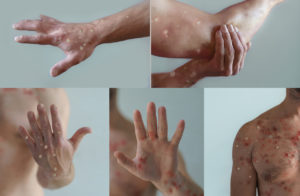- Stay cool. Hot flashes can make you uncomfortable and disrupt your sleep. Reduce them by limiting triggers like alcohol and caffeine. Dress in layers and keep a fan next to your bed.
- Manage stress. Stress can aggravate hot flashes and other symptoms of menopause. Meditate daily and think positive.
- Lose weight. Your muscles shrink and your metabolism slows down as you age. The distribution of your body fat changes too, so more of those pounds wind up around your waist, increasing your risk for heart conditions and diabetes. Fight back by eating less and exercising more.
- Eat soy. Many women find relief from menopause symptoms with soy and supplements, even though studies give conflicting results. See if tofu and soymilk work for you.
- Talk with your doctor. Your doctor can tell you whether you’re a good candidate for hormone replacement therapy or other treatments. Share your concerns and questions.
Our wisdom and compassion often increase as we grow older, but so do our health challenges. More than 90% of older adults have at least one chronic condition, and more than 75% have more than one. Plus, these figures are even higher for women than for men.
Natural changes like menopause and your family medical history play a part, but a healthy lifestyle can help you stay as strong and independent as possible in the years ahead.
Take a look at these tips to help you maintain your health as you age.
Dealing with Menopause:
Staying Physically Fit:
- Condition your heart. You’re about 5 times more likely to have heart disease after you turn 40. Aerobic exercise, along with a diet high in fiber and low in unhealthy fats, can help your heart to stay strong.
- Build your muscles. Slow down muscle loss, and thicken your bones with strength training. Lift weights or try movements that use your body weight for resistance, like planks and pushups.
- Increase your balance. Avoid falls by becoming steadier on your feet. Practice yoga or just stand on one foot while you’re talking on the phone.
- Ask a trainer. Do you already have stiff hips or a sore back? Some professional trainers specialize in corrective fitness that will target the areas you need to limber up.
Other Health Tips for Women Over 40:
- Sleep well. You may find it harder to fall asleep and stay asleep these days. Stick to a consistent schedule and block out nighttime noises.
- Watch your blood pressure. Your blood pressure and heart rate rise as plaque deposits stiffen your arteries over the years. Losing weight, exercising, and limiting salt may help you to avoid needing medication.
- Screen for cancer. Age increases your risk for many forms of cancer. Talk with your doctor about screening tests that spot cancers early when they’re easier to treat and cure.
- Check your hearing. You may already be noticing signs of age-related hearing loss. Shield your ears from loud and persistent noises by lowering the volume on media devices and wearing earplugs when necessary.
- Protect your vision. Ensure your eyeglass and contact lens prescriptions are up to date if you’re having trouble reading the fine print. While no studies have shown a way to prevent cataracts, regular eye exams and managing conditions like diabetes can help.
- Remain engaged. Staying connected is essential for vibrant aging. Cultivate close relationships and learn something new each day.
Staying informed and making healthy lifestyle choices can help you prevent and manage many of the conditions that come with aging. If you’re a woman over 40, start now to maximize your chances of staying mentally sharp and physically fit in your golden years.
Until next time #GYNEGirls and #Preggos…
Dr. Drai





